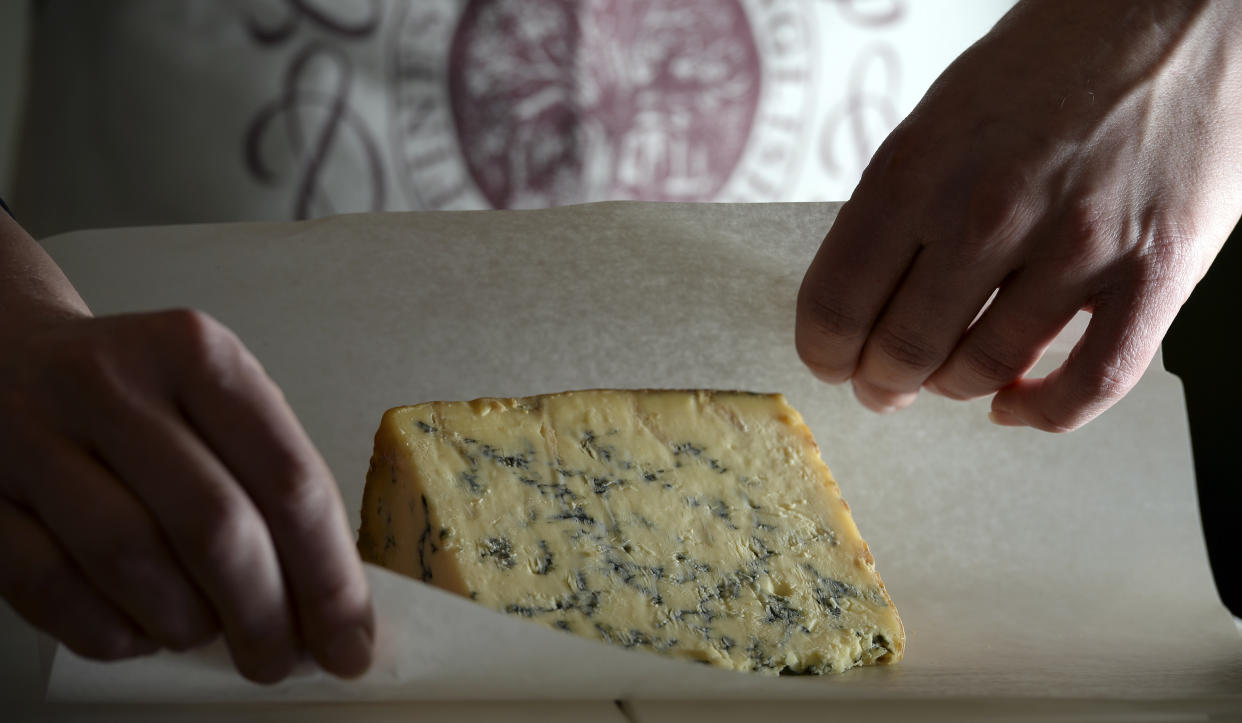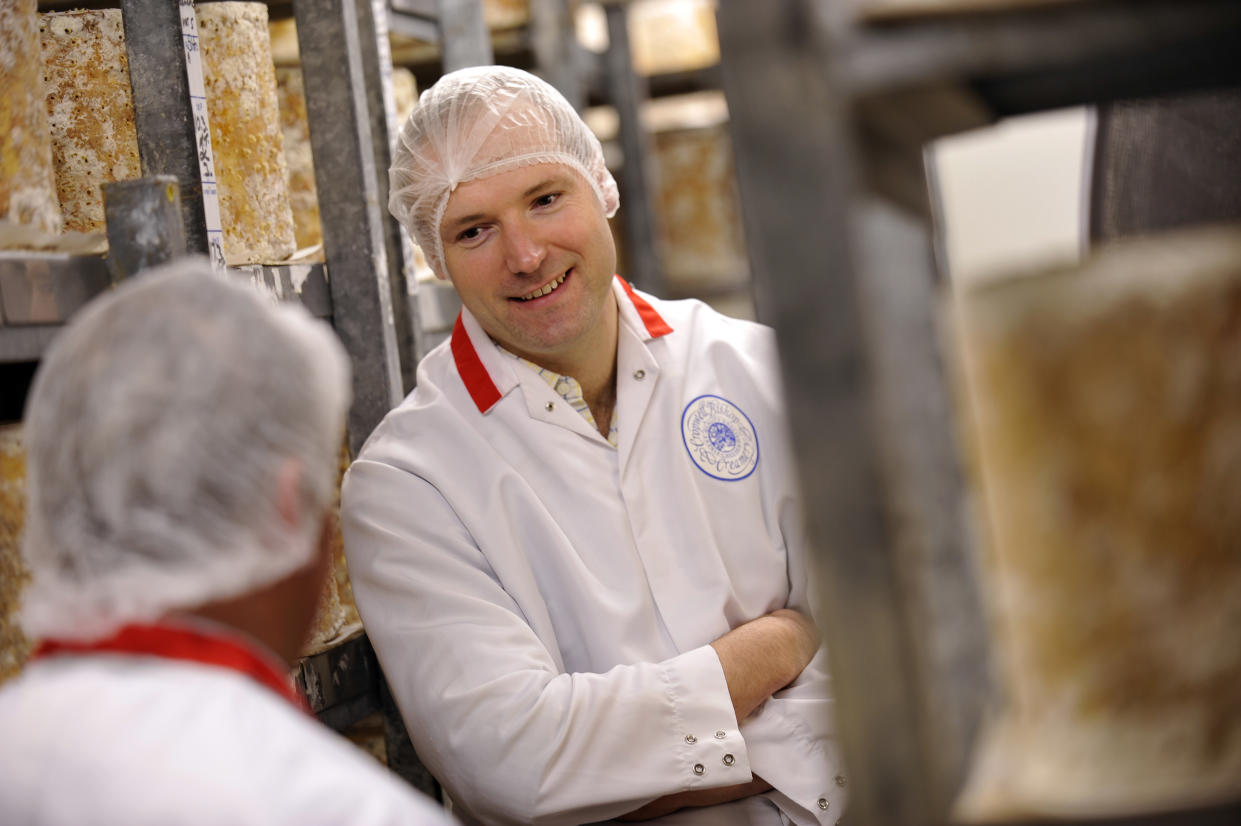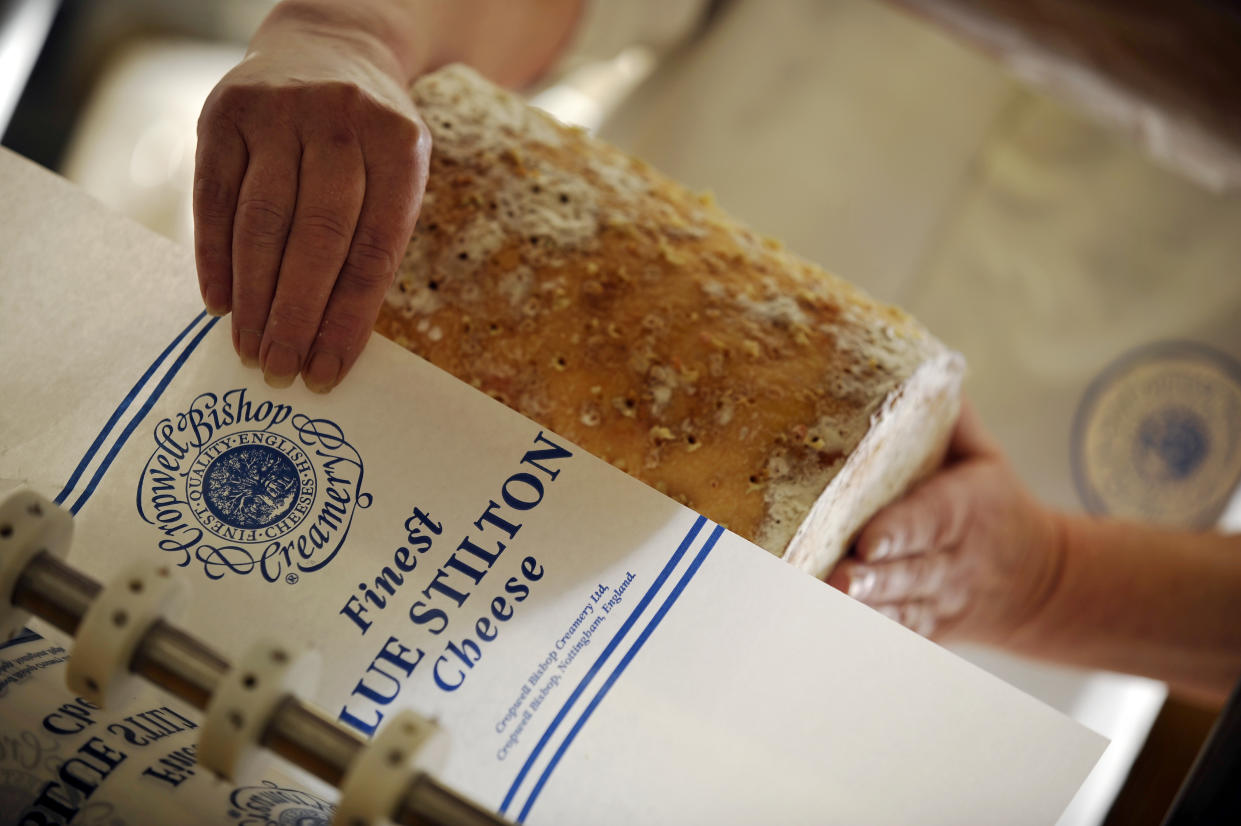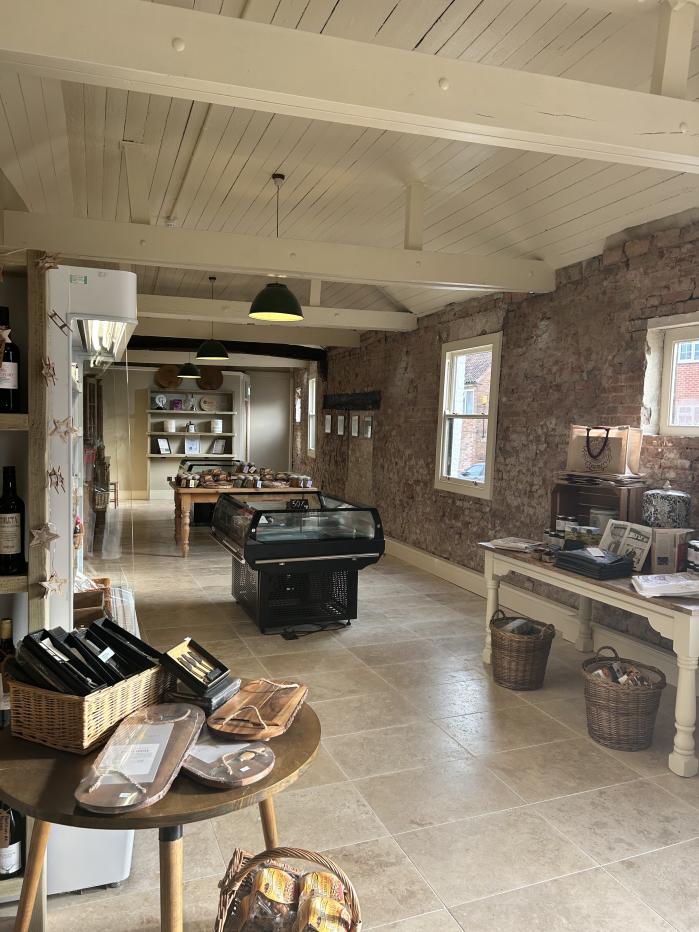Family-run Stilton maker on Brexit, copycats and why you should eat breakfast cheese

As the last family-owned and run Stilton maker, Cropwell Bishop Creamery has maintained a bastion of tradition in an age of private equity takeovers chasing short-term gains.
Robin Skailes, managing director of the third-generation, family-run cheese business, followed his father and grandfather in working at the Vale of Belvoir-based creamery. His great, great, uncle had originally supplied cheese in 1847 before the company started producing it in the 1920s. The family first made Stilton over 80 years ago.
Skailes joined the business in 2006, is vehemently protective of the heritage status and says outside investment would leave Cropwell Bishop – which has a turnover nudging £12m – as a “generic cheese”.
Read More: Prodigy Snacks, the chocolate company 'fit for the modern day'
“It’s hard for non-family people to add value to the cheese they are making as we care about our product,” he says. “It’s not just a commodity, it’s something we have been making for generations and it’s important it tastes good and our customers like it. We are dealing with the premium end of the market and that means something.”
There are currently four Stilton makers left in the UK, with one mooted to close.

“It's a tough market and it always has been for premium, good food in the UK as it doesn’t value it,” he adds. “Whereas the French spend their disposable income on good food, in the UK the cheaper the better.”
Cropwell Bishop produces up to 15% of all Stilton, with Waitrose its largest customer and its award-winning blue cheese highly valued in France, Italy, Spain and the Netherlands.
Stilton was first handed trademark status in 1966, has protected origin status, which includes Gloucester Old Spot pigs and Jersey Royal potatoes and for the Stilton name to be used it must be made in Nottinghamshire, Leicestershire or Derbyshire.
Yet the sector – which saw a 30% dip in sales as the pandemic hit – still sees blue cheese copycats globally, with the Stilton Cheese Makers Association set up to protect the integrity and quality of the brand. One customer even came to Skailes' dairy and was shown the handmaking process of the cheese, only to attempt to copy the process, while the body aims to shut down imitators in Australia and the US.

Brexit also created issues with shipment of products into Europe. Cropwell Bishop used to sell its cheese direct to consumer and now goes through a UK company that has warehouse space and a business in the Netherlands. It then invoices and distributes the product in Europe.
Along with the extra paperwork, a baffling Brexit mandate also sees vets required to inspect every pallet order of cheese. A hindrance for the smaller cheesemakers, Stilton is now grouped together with other cheeses to ease the export burden. “We are selling more cheese into Europe now, but it has nothing to do with Brexit,” adds Skailes. “It’s just that our cheese is more in demand throughout Europe.”
Read More: Wild, the UK's leading refillable deodorant brand
As a seasonal product, Cropwell Bishop is now looking to diversify its heritage business and not rely on its core product. As Nottingham Forest fans, the office also keep up with modern times by tuning into TalkSport, while Skailes says it would be a dream to feature their cheese logo on the Forest sleeve, or even on the wing mirror of an F1 car at the British Grand Prix. "It's not something for our brand, but it would be a fun thing to explore," he smiles.
Despite this, Cropwell Bishop’s marketing spend is minimal, instead relying on word-of-mouth or by entering cheese awards. Skailes admits that if one dairy spends money on marketing it helps each producer.
For now, their Cheesemaker’s Shop on an old part of the dairy has expanded into a cafe, while Skailes is trying to encourage people to eat cheese for breakfast, de rigeur on the continent.
“It is a healthy thing to eat,” he admits. “It fills you up and has loads of nutrition. Yes, it has fat but we all need a bit of that. It’s not necessarily bad for you.”
The Stilton sector is made up of one large producer, Long Clawson Dairy, alongside Cropwell Bishop, which employs around 100 staff during its Christmas period, and Colston Bassett.

Not owning a dairy, Cropwell Bishop uses milk from one of eight family-owned farms in the Peak District National Park, around 40 miles away. The contract stipulates for the cows to be outside five months every year and predominantly grass fed, having moved away from soya.
“There is a chain through the business and it makes us a little bit different from larger dairies,” admits Skailes. “We can take a longer view of the business and not chase profit in a short-term environment.”
Read More: Meet Opply, the automated ingredient ordering service for SMEs
Before joining the family firm and introducing its Beauvale blue cheese shortly afterwards, Skailes worked as a travel sales consultant at Trailfinders and says his children won’t be forced into cheesemaking, despite the generational importance.
“You really need to work for someone else and understand what it’s like not to be important,” adds Skailes. “When you’re seen as the boss’ son, you're viewed as the boss.
“We are a heritage brand, it’s all handmade even down to the cutting of the cheese. We don't mass produce, it’s not automated and what we do make we want to be the best in the market. It would be hard for it to leave the family and continue to be as successful as it is.”



